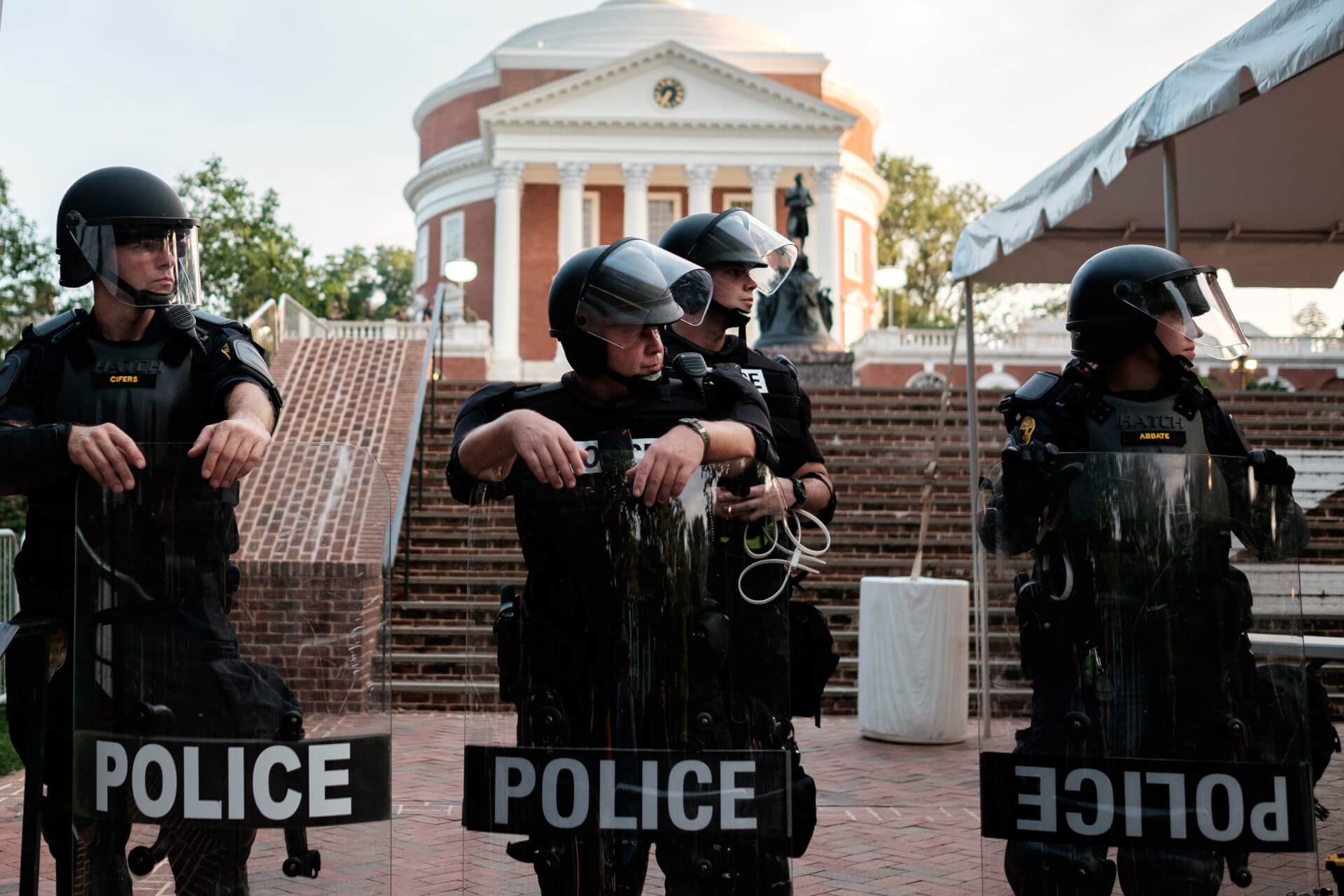Ever since I was a small boy I have always admired police officers.
Due to the senseless civil war that plagued my country for more than a decade, my family was victimized by a home invasion by the rebels who invaded the capital city of Sierra Leone. They entered our home and violated our space and took several valuable items at gun point.
They threatened and laughed at us the entire time while waving their guns around. I was about 16. We could not do anything about it. That day I made a conscious decision to be someone who is in a position to protect and serve my community and my family.
I was determined to pursue a policing career after my family came to the United States in 1997.
Upon graduating from Radford University, I joined the Prince William County Police Department. I served from 2001-2015, as a police officer from 2005-2015.
That’s why it was personally disheartening to see how protesters portrayed police during the demonstrations last month in Charlottesville.
Some of the protesters channeled their chanting towards the police and their immense presence.

As someone who is pro-law enforcement, it makes me feel very concerned for both sides — police and the communities they serve.
I can certainly understand the heightened police presence for the event at Charlottesville. From a law-enforcement point of view, this was done primarily in order to prevent the deadly violence that happened last year. [Editor’s note: State and local police were widely criticized for letting violence spiral out of control during the deadly Unite the Right rally in 2017].
Unfortunately, there is a total disconnect between the two groups. It saddens me that the profession that I have come to love, admire and cherish has a negative perception in the eyes of the public.
We all have a lot of work to do to mend this relationship. If we can all put in some time, focus, and commitment, we can do it.
FIXING A ‘TARNISHED RELATIONSHIP’
Freddie Gray, Michael Brown and many more instances in which police and unarmed individuals have had encounters that resulted in death or other serious bodily injuries have grossly affected the relationship between law enforcement agencies and the communities they serve.
The modern era of American policing, which covers the late 1970s to the present, has been one of the most trying periods for the profession, largely as a result of such widely publicized fatal encounters. Police shootings have tarnished the relationship between departments and communities.
Several semesters ago in one of my criminal justice classes of 100-plus students, when asked who would like to become a police officer, the majority of the class raised their hands. Recently when asked this same question in a similar setting, only about 10 raised their hands.
Both the police agencies and the communities should strive to have a better understanding of each other’s goals and missions.
One common goal that both share is providing a safe space for everyone to exist.
Community members are increasingly participating in initiatives such as citizen oversight boards, disciplinary boards and policy implementation boards, among others.
And while police agencies have set guidelines and policies on how they respond to lethal-force incidents, additional initiatives should be explored. In addition to the standard procedures of placing the officers involved on administrative leave, more use-of-force, cultural diversity and inclusion training is needed.
Police also need to shift their focus to the families affected by these traumatic incidents.
Whether these fatal encounters incidents are justifiable or unjustifiable, the trauma lasts forever for families.
Affected families are the foundational forces behind communities. These families continue to mourn, their perceptions of policing changes over time from trusting the police to having an astounding dislike for the police. As a result, the negative perceptions of police manifests itself within other family members and friends.
Police agencies can strive further to reach these families by demonstrating support for them and providing other available resources. Creating specialized units for reaching out to these families or being a mediator for families will demonstrate understanding, transparency and compassion.
Community members could strive more to be proactive in policing and the police agencies could strive more to involve community members in their daily routines in order to demonstrate accountability and transparency. This continuous partnership should be permanent between both entities.
It will take time, effort, dedication and willingness on all sides in order to accomplish this.
Our stories may be republished online or in print under Creative Commons license CC BY-NC-ND 4.0. We ask that you edit only for style or to shorten, provide proper attribution and link to our website. AP and Getty images may not be republished. Please see our republishing guidelines for use of any other photos and graphics.






Chernoh Wurie